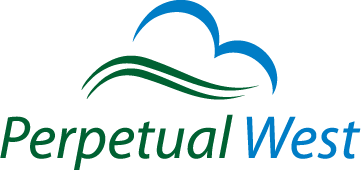Google is a cloud pioneer and their technology is built with the cloud in mind. To Google, it makes sense that all roads should lead to the cloud when it comes to a desktop OS as well. One of Google’s latest product offerings is the Google Chromebook and Chrome OS. A Chromebook is essentially an internet dependent, lightweight laptop that runs Chrome OS (i.e. Google’s answer to Windows or Mac OS X on the desktop). Chrome OS represents a dramatic shift in thinking when it comes to desktop operating systems. Chrome OS is basically the same browser that you would use on a PC or Mac but with a few additions that make it a functional OS. Since Chromebooks have just recently been made available to Canadians, I think it’s worth taking a closer look at what they have to offer for small and medium sized businesses. Chromebooks are being adopted by schools across the country but do they make sense for your business? In Part 1 of this series on Chromebooks, I’ll look at Chromebooks from a macro level and in Part 2 we’ll take a closer look at the apps available for them.
Price
Since Chromebooks rely on an internet connection, they usually have stripped down specs and a low price point (making them similar to netbooks in this respect). For companies looking to provide staff (especially mobile employees) equipment that falls within a certain budget, chromebooks should meet their requirements. Google claims they have the lowest total cost of ownership (TCO) of any end computing device.
Speed
When was the last time your computer booted in seconds? I am currently writing this post on a Chromebook Pixel, Google’s flagship device and it boots in 5 seconds. It takes about 3 seconds to login and load all your tabs (previously left open when you shut down I might add). If my Windows PC fully boots in less than 5 minutes it’s a small miracle. The ability to instantly be working (assuming it signs onto a WiFi network like my home network which mine does in less than 3 seconds) is a feature I can’t emphasize enough.
Security
No viruses. Let me repeat…no viruses. Since the browser is the only app needed and allowed to run, Google uses what’s called “verified boot” to ensure nothing malicious is running. If any modifications have been detected, Google wipes Chrome OS and reinstalls it. Chrome OS also auto updates so you don’t have to worry if you’re running the latest version. Any files stored locally are hardware encrypted and Google allows policies to be enforced by user and/or device. Google has done a good job addressing the security concerns businesses have.
Storage
Google wants you to store your files in the cloud. As a result, you won’t find a lot of storage space on Chromebooks – just enough to manage any downloads you might gather. Since you’re working with web apps only, you don’t need the space to install large local apps. Most Chromebooks also have memory card slots so you can add additional memory if you’d like.
Connectivity
Since Chromebooks rely on being connected to be functional, expect to have good WiFi cards that allow you to connect using the latest standards. You will also likely have Bluetooth and optionally 3G/4G capabilities. If you want to connect to a wired ethernet connection, you’ll most likely need a USB to Ethernet adapter. VPN support is also built in so you can connect to private networks if need be.
Synchronization
Google has taken anything personal about the computer and moved it to the cloud. Log into a chrome browser on any of your other devices like an iPad, Android phone or Macbook and you’ll find that all your bookmarks, open tabs, web apps etc. are all in sync across all your devices. Given the multi-device world that we live in, this is welcome technology.
Ports
Ports are kept to a minimum on the Chromebook. A display port and a couple USB ports is really all you need if you are working with web apps however if you are used to having a plethora of ports you will be looking for adapters as a workaround.
General Specifications
Screen size, weight, battery life etc. will vary among models but companies like Samsung, HP and Acer all have models to choose from so you will have some options. With the growth in Chromebooks (especially in education), expect to see many more models to become available.
In summary, Chromebooks are definitely a shift from the traditional Windows or Mac PCs we’ve all been used to. They require you to be connected to be fully functional however but in today’s day and age, when are we not? The simplicity of them is refreshing and the technology just feels like it’s getting out way to let us get work done. Getting work done however relies on apps and in Part 2, I’ll take a closer look at what web apps are available and if they’re good enough replace their desktop competition.
httpv://youtu.be/j-XTpdDDXiU
Perpetual West is a certified Google Apps consultant and Google Apps Authorized Reseller.
Contact us today at 1 (877) 388-6400 to see how we can help your business get the most out of Google Apps for Business.



